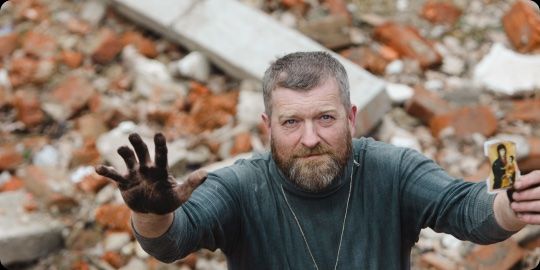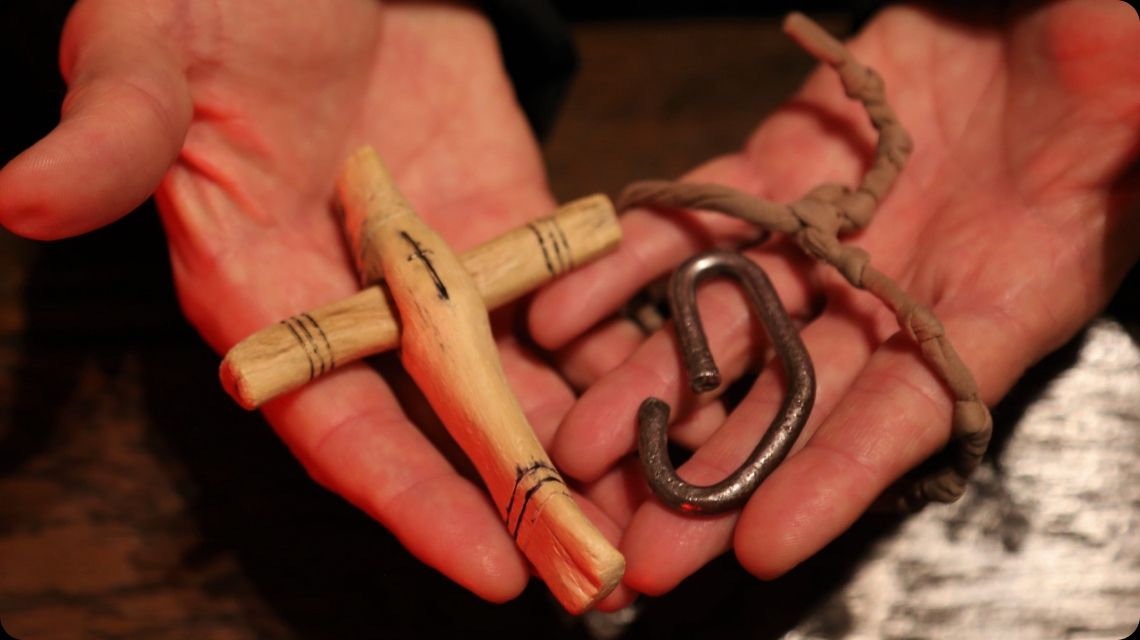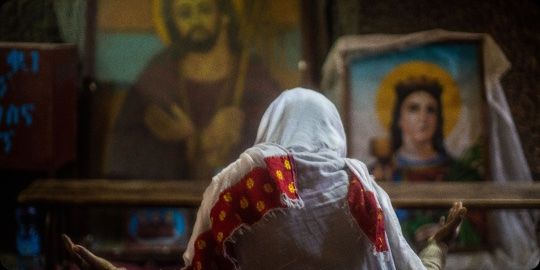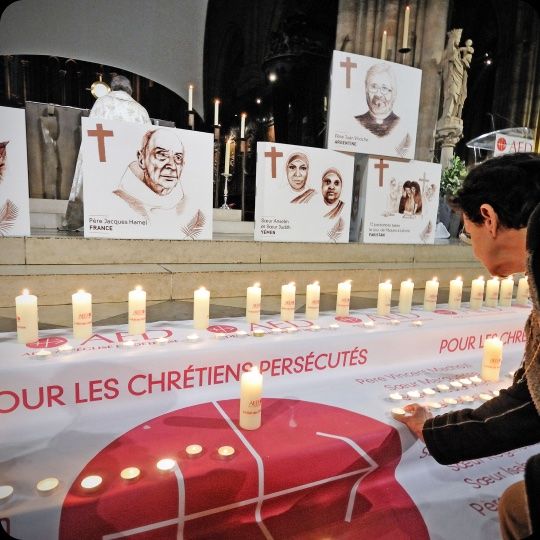Religious freedom report in the world
- Everyone has the right to freedom of thought, conscience and religion – without discrimination, oppression or persecution.
- Religious freedom, like other human rights, is strongly correlated with political stability. Repression of religion or belief can serve as a major driver of conflict and violence.
- For 25 years, ACN’s Religious Freedom in the World Report has analysed the state of religious freedom in 196 countries worldwide.
- To this day, it remains the only global report by a non-governmental organisation that systematically documents the situation of religious freedom in every country.
What Is Religious Freedom?
Everyone has the right to freedom of thought, conscience and religion [guaranteed and respected]; this right includes freedom to change his religion or belief, and freedom, either alone or in community with others and in public or private, to manifest his religion or belief in teaching, practice, worship and observance.
Article 18 of The Universal Declaration of Human Rights
What it means?
It means that every person has the right to choose, practice, and express their religious beliefs — or to hold no belief at all — without interference, discrimination, or fear. It’s a fundamental human right, protecting not only individuals but also communities and faith groups in their collective expression of religion.
This freedom includes:
Freedom to Believe – Everyone can hold any religious belief (or none) without coercion or punishment.
Freedom to Practice – People can worship, follow religious rituals, and teach their faith.
Freedom to Express – Beliefs can be shared publicly or privately, alone or in community.
Freedom from Coercion – No one can be forced to adopt or renounce a religion against their will.
Religious freedom is deeply connected to other essential rights — like freedom of speech, expression, conscience,
assembly, and association



The more the world knows about acts of religious hatred and neglect, the more the world will be able to do something about it. - Pope Francis

Why does it matter?
Because everyone benefits.
Freedom of Religion is for all. It allows people of different faiths
and worldviews to live peacefully side by side. It ensures that
individuals and faith-based organizations are not forced to choose
between their beliefs and serving their communities.
When religious freedom is repressed, it’s not only a threat to
personal liberty and human dignity — it’s an attack on the very
foundation of a just and diverse society.
Religious freedom is your right — and your responsibility.
Read the report. Act today.
Religious Freedom: a Right, Not a Privilege
Can people do anything in the name of religion?
No. Religious freedom, like other rights, is not absolute. Governments may place restrictions only when there is a compelling reason — such as protecting public safety, health, order, or the rights and freedoms of others.
Does religious freedom give special privileges to religious people?
Also no. Religious freedom protects everyone equally — whether they are Christians, Jews, Muslims, Hindus, Buddhists, as well as non-believers. It guarantees that individuals remain free to follow their own path — whether rooted in faith or not — without pressure from the state or society. By protecting freedom of conscience, it upholds the deeply personal right to seek truth, meaning, and purpose on one’s own terms. When governments interfere with conscience, they open the door to violating other personal freedoms too.
Your right to religious freedom
# The Importance of Religious Freedom
Religious freedom is a cornerstone of any free and just society. Its value extends to everyone—believers and non-believers alike. It is not merely about religion: it is about safeguarding the right of every individual to think, believe, and live according to their conscience.
Respect for this right:
- affirms human dignity and personal integrity;
- guarantees equal treatment under the law for all, regardless of belief;
- enables individuals and communities to express and transmit their values, traditions, and identities without interference;
- protects individuals and groups from persecution, coercion, and discrimination;
- encourages dialogue and peaceful coexistence among different worldviews;
- strengthens democracy by promoting tolerance, pluralism, and respect;
- reduces conflict by giving space for different groups to live together peacefully.
A society that respects religious freedom is one where each person can flourish, and where diversity becomes a source of strength rather than division.
# What Religious Freedom Includes
Everyone has the inherent right to freedom of thought, conscience, and religion.
Everyone has the inherent right to freedom of thought, conscience, and religion. This fundamental right encompasses:
- the freedom to have or adopt a religion or belief of one’s choice;
- the freedom to change or renounce one’s religion or belief;
- the freedom to practice one’s religion or belief—alone or in community, in public or in private.
This includes the right to worship, to observe religious holidays, to teach, to wear religious symbols, and to participate in rituals, prayer, and other acts of devotion.
At the Personal Level
Religious freedom protects the intangible realm of conscience and the dignity of each person. Key aspects include:
- freedom to believe or not believe, and to join a religious community;
- freedom to pray and worship privately or publicly, and to have places of worship;
- freedom for parents to raise their children in accordance with their religious convictions, including access to religious education and instruction;
- freedom for families to choose schools that reflect their values without facing financial penalties;
- freedom to receive religious assistance in hospitals, prisons, military service, or other public institutions;
- freedom from coercion to act against one’s beliefs or join groups contrary to one’s convictions;
- freedom from discrimination or restrictions based on religion in employment, education, civic participation, or other areas of life.
At the Community Level
Religious communities bring together people of shared belief and function as organized social bodies. To fulfill their mission, they must be free to:
- establish their own internal leadership and choose ministers according to their traditions;
- ordain clergy, appoint to religious offices, and communicate freely within and outside the community;
- create institutions for religious formation and theological education;
- publish, access, and use religious texts;
- teach and communicate their faith and moral teachings, both inside and outside places of worship;
- use media platforms to share their message;
- engage in charitable, educational, and social initiatives inspired by their faith.
For communities with a transnational structure—such as the Catholic Church—additional freedoms are essential:
- to maintain communication and unity between local and global leadership;
- to disseminate religious teachings, documents, and guidance;
- to participate in international dialogue, cooperation, and solidarity, including through interfaith meetings and theological exchange.

